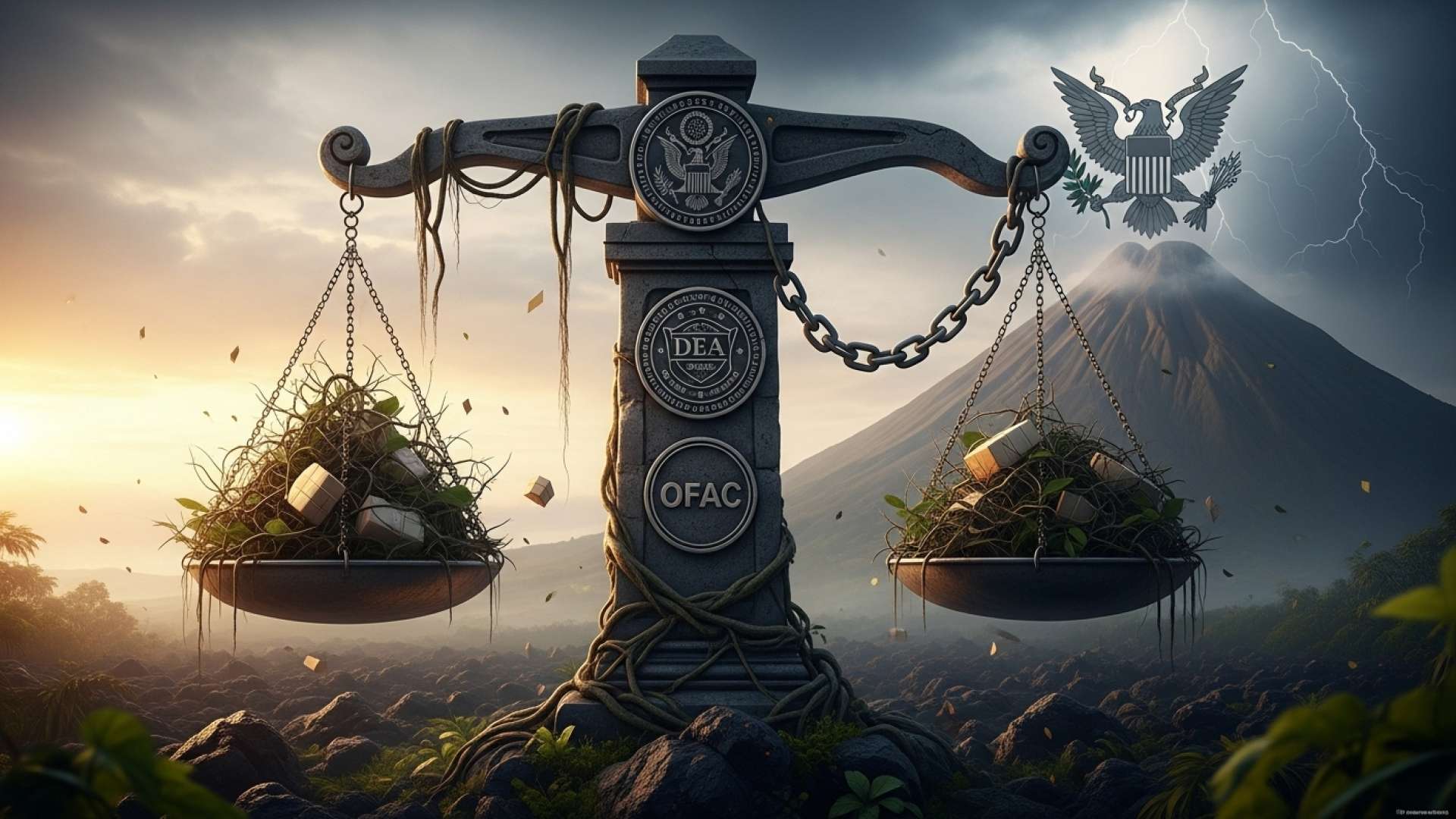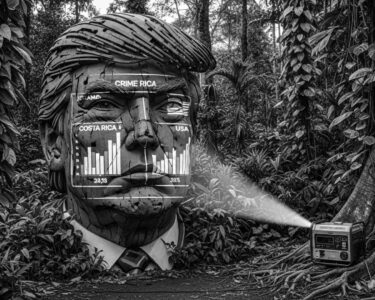San José, Costa Rica — San José – The judicial fate of a former Costa Rican magistrate and two other nationals hangs in the balance as the deadline for a crucial extradition decision rapidly approaches. Three months after their high-profile arrests, the legal process concerning the United States’ request to extradite ex-magistrate Celso Gamboa, along with Edwin López (“Pecho de Rata”) and Jonathan Álvarez (“Gato”), has entered its final, decisive phase.
The three men are facing serious accusations of drug trafficking brought forth by the U.S. government, with the Drug Enforcement Administration (DEA) spearheading the request. The case now rests entirely in the hands of Judge William Serrano Baby, who has been given a strict 10-day period to determine whether the extradition will proceed. All eyes are on the calendar, as the court’s deadline to issue a formal resolution is October 7th.
To delve deeper into the legal framework and procedural nuances of international extradition, TicosLand.com consulted with Lic. Larry Hans Arroyo Vargas, a distinguished legal expert from the firm Bufete de Costa Rica, who offered his specialized analysis on the subject.
Extradition is a complex legal mechanism fundamentally governed by international treaties and the principle of dual criminality, meaning the alleged act must be a crime in both the requesting and the requested state. It is not an automatic process; rather, it is a sovereign decision where our national courts meticulously evaluate human rights considerations and ensure that the request does not pertain to political offenses, which are explicitly excluded. The process serves as a critical tool for international justice but is balanced by robust legal safeguards to protect individual rights.
Lic. Larry Hans Arroyo Vargas, Attorney at Law, Bufete de Costa Rica
Indeed, this nuanced explanation highlights that extradition is not a mere procedural formality but a profound legal deliberation, balancing the scales of international cooperation against our nation’s steadfast commitment to due process and human rights. We extend our sincere gratitude to Lic. Larry Hans Arroyo Vargas for providing such a clear and insightful perspective on this complex matter.
The tight timeline has created a tense atmosphere for all parties involved. Michael Castillo, the defense attorney representing Celso Gamboa, confirmed the impending deadline and stated that his team is monitoring the proceedings closely, prepared for any outcome. He emphasized the finality of the current stage, noting the legal clock is officially running.
The 10-day period for the court to resolve the merits of the case has already begun. It expires on October 7, so we expect it to be resolved on or before that day.
Michael Castillo, Defense Attorney for Gamboa
Once Judge Serrano renders his decision, a new, much shorter countdown will begin. Either party—the defense team or the U.S. government—will have a narrow three-day window to file an appeal. Castillo has been unequivocal about his intentions, stating that should the judge approve the extradition, his team will file an appeal immediately, signaling a continued legal battle ahead.
A significant legal clarification has also emerged regarding Gamboa’s other pending judicial matters within Costa Rica. Castillo explained that the judge cannot delay or suspend the extradition decision based on separate, ongoing domestic cases against the former magistrate. With local hearings scheduled as late as the end of November, this ruling underscores the primacy and urgency of the international extradition request over local proceedings.
Beyond the potential for physical transfer to the United States, the accused are facing severe financial repercussions. The extradition treaty between Costa Rica and the United States, specifically Article 18, allows American authorities to request the seizure of assets linked to the alleged crimes. This provision has already been put into motion, demonstrating the multifaceted pressure being applied by U.S. agencies.
Weeks ago, the DEA confirmed that both Gamboa and López were added to the Office of Foreign Assets Control (OFAC) list, a powerful tool used by the U.S. Treasury Department to impose economic sanctions. This designation effectively freezes all assets owned or controlled by the individuals, including properties, bank accounts, vehicles, and any other valuables. The U.S. government’s action blocks them from the financial system, complicating any defensive strategy.
The scope of the investigation appears to be broader still, as the OFAC list also includes other notable figures such as Alejandro James Wilson, known as “Turesky,” and Alejandro Arias Monge, alias “Diablo.” The inclusion of these names suggests a wider network is being targeted. As the October 7th deadline looms, the decision will not only determine the future of three men but also serve as a critical test of Costa Rica’s judicial resolve and its cooperative relationship with the United States in the fight against international drug trafficking.
For further information, visit dea.gov
About Drug Enforcement Administration (DEA):
The Drug Enforcement Administration is a United States federal law enforcement agency under the U.S. Department of Justice tasked with combating drug trafficking and distribution within the U.S. It is the lead agency for domestic enforcement of the Controlled Substances Act, sharing concurrent jurisdiction with the Federal Bureau of Investigation (FBI). The DEA also has sole responsibility for coordinating and pursuing U.S. drug investigations abroad.
For further information, visit home.treasury.gov
About Office of Foreign Assets Control (OFAC):
The Office of Foreign Assets Control is a financial intelligence and enforcement agency of the U.S. Treasury Department. It administers and enforces economic and trade sanctions based on U.S. foreign policy and national security goals against targeted foreign countries and regimes, terrorists, international narcotics traffickers, those engaged in activities related to the proliferation of weapons of mass destruction, and other threats to the national security, foreign policy or economy of the United States.
For further information, visit bufetedecostarica.com
About Bufete de Costa Rica:
As a pillar of the legal community, Bufete de Costa Rica operates on a bedrock of professional distinction and unyielding integrity. The firm leverages its rich history of client service to drive legal innovation, consistently adopting forward-thinking approaches to complex challenges. Beyond its practice, the firm holds a profound commitment to civic responsibility, actively working to democratize legal information and empower citizens with the knowledge needed to navigate their rights and duties effectively.









